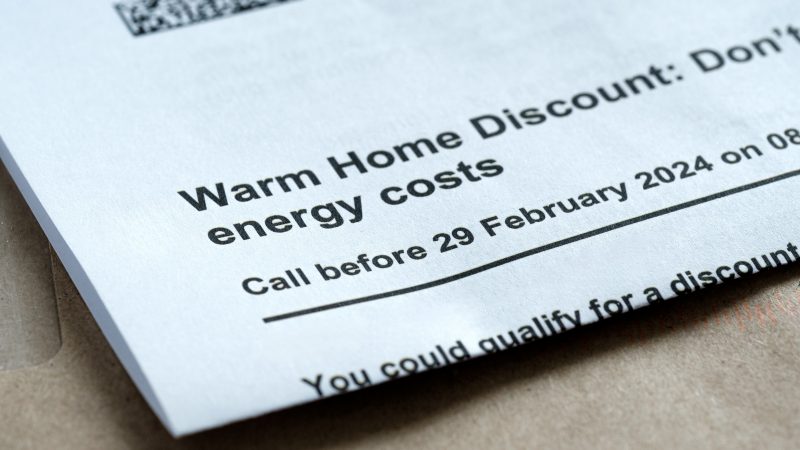
In my constituency of South Norfolk over 20% of households are off the gas grid and heated by oil – and in some parts this increases to over 50%. These constituents are among the 4 million people across the UK who live in oil-heated households, alongside 250,000 businesses. These consumers want to play their part in reducing their emissions, however they face unique challenges when it comes to heating their homes.
The Government’s energy policies should be judged by whether they work for consumers and the homes that they live in. This means affordability, ease and fairness must all be taken into consideration – as well as whether they help us reach Net Zero.
The upcoming Warm Homes Plan will give much needed clarity and purpose on how the Government will decarbonise households effectively, setting out its direction on heating for years to come. It provides the Government with a great opportunity to ensure that it recognises the particular situation faced by rural communities and the best ways for these households to decarbonise in a practical, affordable and non-disruptive way.
READ MORE: ‘We need to ‘build baby build’ social housing to meet the 1.5m new homes target’
To take people with us on this journey towards Net Zero, we need to provide them with options. This can only be done by recognising the differences that exist between houses across the UK. In particular, due to their rural location, age and method of construction, off-grid houses are some of the hardest and most expensive to decarbonise. They are served by the least robust electric grid systems and have structures and characteristics that are very different to other homes in our towns and cities which, being more homogenous in design and construction, are more cost-effective to install heat pumps in.
Whilst heat pumps are of course an important solution for urban and suburban households, many of my constituents won’t see them as an effective solution, let alone be able to afford to install one. This is even with the generous grants on offer. For oil-heated households like those in my constituency, the average cost of conversion to an air source heat pump is £14,500 with a range of £10,300 to £26,900. I know my ministerial colleagues are alive to these challenges and there are solutions available to address these.
What I and colleagues who represent rural communities want to see in the Warm Homes Plan is a recognition of the specific issues faced by rural communities and the need to embrace different solutions. Many off-grid households will not be able to move to electrified forms of heating, at least in the short term, and as a result we need to look at alternatives. One such alternative is switching to greener fuels which go in existing boilers. This includes the use of renewable liquid fuels, which has been trialled by industry in oil-heated households and businesses across the country.
This began in Cornwall, where a fuel distributor has created the country’s first renewable liquid fuel village, converting many buildings in the village of Kehelland to use these fuels, including domestic homes, businesses, and even the local church and school. The conversions have involved no major upfront costs, take around an hour and deliver a significant reduction in carbon emissions.
Subscribe here to our daily newsletter roundup of Labour news, analysis and comment– and follow us on Bluesky, WhatsApp, X and Facebook.
What is happening in Kehelland is a perfect example of what can be achieved when we work with communities to find tailored solutions. The local community there has been involved in every stage of the process and they have become passionate advocates for the decarbonisation agenda as a result. This Cornish village offers a real blueprint for rural decarbonisation.
The Scottish, Northern Ireland and Irish Governments have all already committed to using these fuels as part of their Net Zero plans. I want my constituents in Norfolk and across rural England to have a similar choice.
Ensuring that consumers can access these fuels at an affordable price will empower off-grid consumers by offering a true choice about how they wish to decarbonise, delivering on the trust that voters in rural constituencies like mine put in our party at last year’s election.
Share your thoughts. Contribute on this story or tell your own by writing to our Editor. The best letters every week will be published on the site. Find out how to get your letter published.
This can be done by ensuring that the Warm Homes Plan is clear about the challenges that these households face, adopts a technology neutral approach, includes solutions like renewable liquid fuels and is consistent with the devolved governments in recognising the importance of these fuels. This is a policy which makes absolute sense and I’m going to continue to engage with the Government on the Warm Homes Plan, alongside my rural colleagues, as we deliver a clean energy programme that works for rural and urban alike.
-
- SHARE: If you have anything to share that we should be looking into or publishing about this story – or any other topic involving Labour– contact us (strictly anonymously if you wish) at [email protected].
- SUBSCRIBE: Sign up to LabourList’s morning email here for the best briefing on everything Labour, every weekday morning.
- DONATE: If you value our work, please chip in a few pounds a week and become one of our supporters, helping sustain and expand our coverage.
- PARTNER: If you or your organisation might be interested in partnering with us on sponsored events or projects, email [email protected].
- ADVERTISE: If your organisation would like to advertise or run sponsored pieces on LabourList‘s daily newsletter or website, contact our exclusive ad partners Total Politics at [email protected].




More from LabourList
Scottish Parliament elections 2026: Full list of Labour candidates for Holyrood
‘As metro mayors gain power, Labour must tighten political accountability’
Letters to the Editor – week ending 22 February 2026